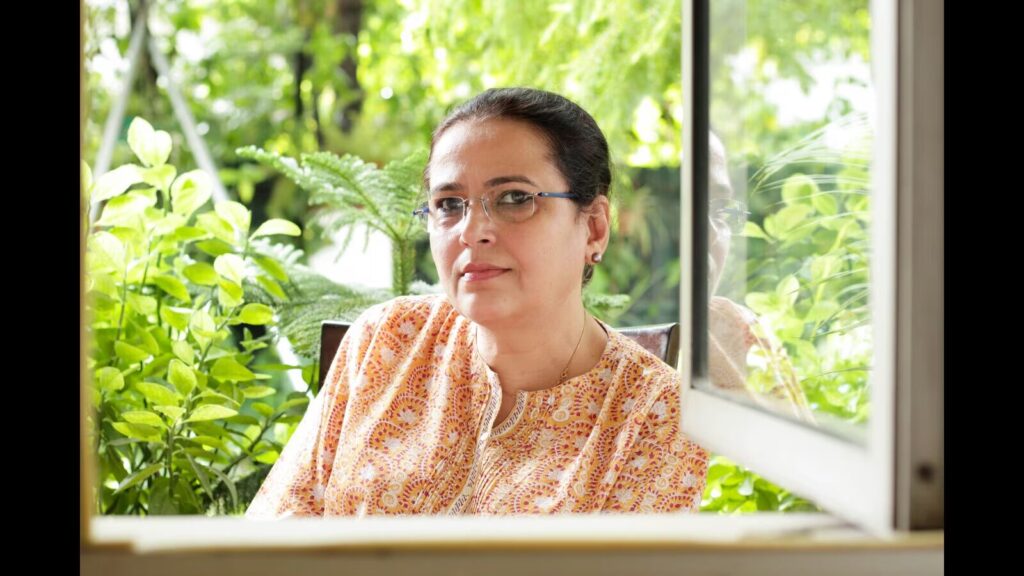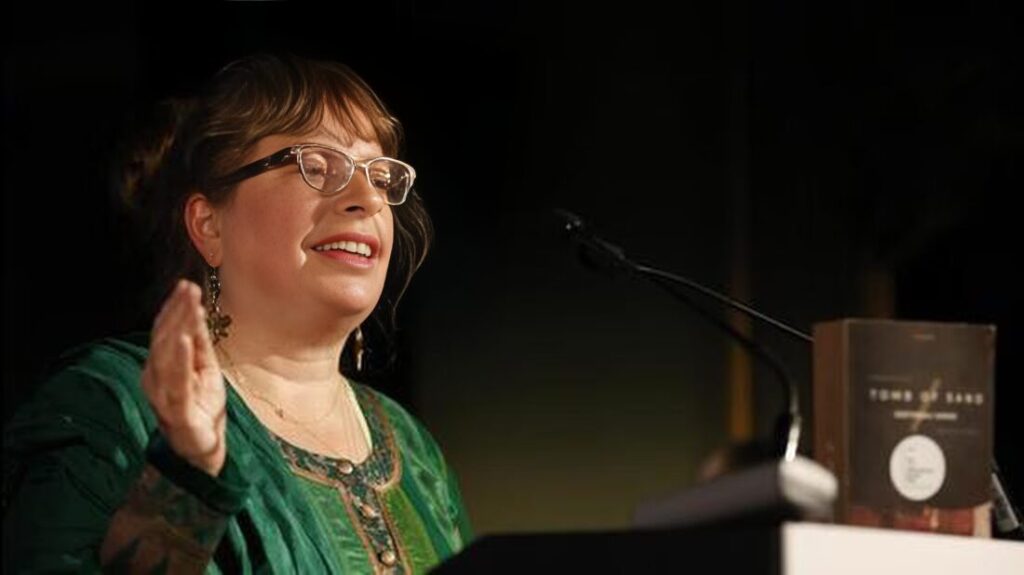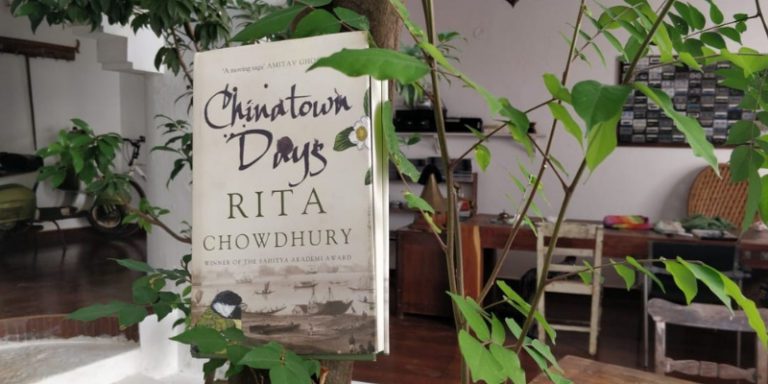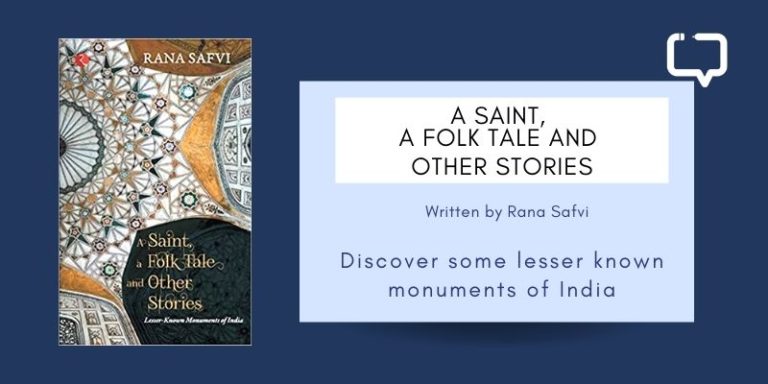Language empowers, but it alienates as well. Translators are literary archaeologists who empower the languages and enable the readers. They round off the sharp edges of a foreign language and impart it a ‘home’, bringing it to those who don’t know any other language apart from their own. Translation is one of the most noble pursuits of being an intellectual. Apart from bridging the literary gaps between words geographically and cerebrally, it does a yeoman service of bringing regional issues like class differences, abject poverty and deprivation of equitable resources.
What the mind doesn’t know, the eye can’t see. There is an intimate relation between a language and the geography it inhabits. Language, when it was first devised, was not made to be flexible. It exists intimately within its geographic and cerebral boundary and doesn’t take too kindly to the ones who peep out of the holes. The translators are the ones then who tame these behemoth beasts.
How Indian Women Translators Are Changing the Concept of “Word”
Indian women translators or women translating Indian fiction, like Rakshanda Jalil, Daisy Rockwell, Anita Gopalan, Jayasree Kalathil, and Priyamvada, have been translating Indian languages like Hindi, Malayalam, Urdu, and Tamil for a long time. By wrapping the languages together and serving them on our reading platters, these women are changing the concept of ‘word’ as we know it. Here, we read about the language that has the weakest space in translated literature: Hindi.
Recommended Reading: Indian Feminist Literature Through the Ages
Rakhshanda Jalil

An Indian writer, translator and literary historian, she is known as much for her original works (But You Don’t Look like a Muslim, Harper Collins, 2019) as for her translation of Munshi Premchand. One of her most memorable translations is of well-known Premchand stories, The Temple and The Mosque (Harper Collins, 2011). She has translated Premchand’s well-known stories like Kafan, Idgah, Namak ka Daroga, Bade Bhai Sahab, Thakur ka kuan, Do Bailo ki Kahani and Pus ki Ek Raat.
Recommended Reading: In Conversation With Rakhshanda Jalil
There is something about Munshi Premchand. Even after 88 years of his death, his stories, characters, situations, and the passion seeping from his lines are still as relevant as they were in pre-independent India. Although Munshiji passed away long before India achieved freedom, his stories warned us of continuing slavery, not to colonial bosses but to indigenous rabble-rousers.
But how did Jalil change the concept of the word as we know it? The translation is ineffective and limp if the source text does not have a resounding appeal. Her choice to translate Munshi Premchand is not new, as scores of writers/translators have done so in the past. It was her choice of stories from the confounding sea of words that Premchand created that stands out. With stories that bring struggles of the downtrodden and poor, patriarchy yoked to women from lower as well as upper caste, discord festering between Muslims and Hindus.
Recommended Reading: Being a translator, researcher, and more: Rakhshanda Jalil at JLF 2022
These stories, when put in a stack and looked at collectively, are Premchand’s, but when sifted and separated to be branded in a 2011 book, The Temple and the Mosque, these stories now have a distinct stamp of Jalil as a translator. In 2011, literature had yet to witness the wave of Dalit writers who told stories of their own experiences and brought the hidden India to the open page. Jalil, in a way, helped this movement by spotlighting stories like Thakur ka Kuan, Kafan and Poos ki Raat.
These stories have her female gaze empathising with Gangi of The Thakur’s Well, who finds herself encumbered with the daunting task of sneaking to the well of a rich, upper-caste man.

Although the story is about untouchability, Premchand has actually used it to etch out the patriarchy prevailing across all castes. He balances Gangi’s untouchability with the patriarchy imposed upon women of upper castes. Read the following excerpt:
‘Gangi’s defiant heart rebelled against the ties and torpor of convention. How was she inferior and these guffawing men superior? What was it that set them apart? The sacred thread that the Thakurs wore around their neck? ‘What makes them better than us?’ Gangi thought. ‘Mere words don’t make a man superior. They leer at me with lust-filled eyes, yet they pride themselves on being the higher castes.’
– The Thakur’s Well by Premchand, translated by Rakhshanda Jalil
Recommended Reading: Traitor, translated by Rakhshanda Jalil
By choosing to translate this story and putting it as an opener in her collection, Jalil highlights the second-rate existence of women within their domestic holds. About half a century later, women across India and possibly the world are still in a similar state to how Premchand described them. While Gangi hides to fetch water, the women who don’t have to hide are cut from the same cloth. They bemoan how men sit down to eat and ask them to fetch water. “I think men get piqued if they see us sitting idle,” one of them says. Another compares their existence to slave girls.
Intoxication, a second story that Jalil translated, is India’s answer to Hollywood’s Saltburn. A rich guy takes the narrator to Moradabad, where his family owns a sprawling estate. The narrator, fond of his Gandhian principles, takes pride in treating everyone equally. His principles start to go down the trash chute as he becomes habitual of luxury and servile assistance. He orders around and even hits servants. Munshi Premchand has killed two birds with one stone: the pride of armchair activists and class difference. Have a gander:
It was ten o’clock. I could barely keep my eyes open, but how could I turn down my own bedding? I was, after all, a prince! It was half past eleven by the time a servant finally came. He was an over-familiar sort of fellow. Caught up in the various household chores, he had forgotten to make my bed. When he had remembered, he had come at a run. I gave him such a tongue-lashing that he would remember it for a long time.
– Intoxication by Premchand, translated by Rakhshanda Jalil
The story ends with a slow curdling of the narrator’s intoxication when he slaps a man for elbowing him in a crowded third-class compartment of a train. This is classic Premchand: dissecting a principled man to reveal the narrow ideals inside.
Although Jalil has chosen well-known Premchand shorts for her translation, Hindi had never before given in to English so graciously. The language flows, accommodating ‘cowries’ and ‘sers’ of Hindi seamlessly with the language of our colonial subjugators.
Daisy Rockwell

Shot into fame for the English-language translation of Geetanjali Shree’s Hindi novel Tomb of Sand, which went on to win International Booker, the book tells the story of an eighty-year-old woman’s relationship with her daughter after her husband dies. Towards the end, the two of them journey to Pakistan, forcing a confrontation with the trauma left by Partition in the protagonist’s early years. Despite the gravity of the issues in the novel, it maintains a playful, experimental style.
Recommended Reading: Daisy Rockwell: Translations, the Booker prize and the way ahead
For Rockwell, languages are like people. Some you love, some you hate, some you just don’t gel with. What interested her about Hindi was that it has a kind of hugeness. In some ways, it’s like English in that it is a huge language that many people use to communicate. “It’s a big blousy language that has many manifestations and can take in words indefinitely from any language, especially from English, Persian, Portuguese, Sanskrit and so on, but it just soaks them up, which is similar to English too,” she writes.
Rockwell’s translation of Tomb of Sand (Tilted Axis Press, 2021) won the 2022 International Booker Prize and is the first ever Hindi novel to be shortlisted. Her other translations include Upendranath Ashk’s Falling Walls (Penguin, 2015), Bhisham Sahni’s Tamas (Penguin, 2018), Khadija Mastur’s The Women’s Courtyard (Penguin, 2018), and Krishna Sobti’s A Gujarat Here, a Gujarat There (Penguin, 2019).
According to Rockwell, who took a decade to be fluent in Hindi and Urdu, translation is a lonely activity. Her reason for translating Tomb of Sand was that she had never had any of her books published outside of India. Deborah Smith, who runs Tilted Axis Press, introduced the Hindi book to Rockwell. A Korean-to-English translator, she won the International Booker for The Vegetarian (by Han Kang) and then went on to start Tilted Axis Press. Rockwell, who had only translated classics until then, readily agreed as it was for the first time that an American publisher would bring her book to her own country.
It’s a dismal world for translated works of South-Asian languages. Rockwell, in an interview with the Columbia Journal of Literary Criticism, shares that in the US, translation is considered risky. Publishers don’t have many translated works, and usually, if they do, it’s not much of a gamble since the book was already a bestseller all over the world. She says that sometimes translators don’t have their names on the cover.
Recommended Reading: A Review of the Hindi Book That Won the International Booker Prize 2022
Regarding Tomb Of Sand, Rockwell says that Geetanjali Shree wanted her to recreate it in English — not to take her literally but to “play,” as she puts it. It was challenging, as she was “used to translating dead people, or nearly-dead people.” In a way, Geetanjali Shree helped Rockwell “change the word.” Rockwell has frequently spoken about the significance of “dhwani” in her translation. She believes in the “sound” of a word as against its literal meaning. Her landmark translation of Ret Samadhi, which won Hindi its first International Booker, is replete with phrases and words that would appear artificial if translated word for word. Hence, Rockwell took the “dhwani approach” in her translation, and the rest is history,
Slowly Ma pours herself into the crannies and crevices of the house. She feels as though she’s flying. She likes it. My feet don’t touch the ground here. She flies about silently. She listens to the comings and goings of her breathing. She hears the curling of a tendril. She hears the growing of the grass. She hears the undulation of the sunlight. She hears the descent of evening. She hears the unfurling of her own body. She hears the blossoming of the unfurling.
– Tomb of Sand by Geetanjali Shree, translated by Daisy Rockwell
Anita Gopalan

Winner of the PAN/Heim Translation Fund Grant, Anita Gopalan has translated Geet Chaturvedi’s Sim Sim. In a partition-based story, Sim Sim pulls partition trauma and stands it in front of magical realism. There is a library where books talk to each other and a love story that could be or could not be true. Longlisted for JCB Awards 2023, Sim Sim is a poignant tale of love and loss.
Anita and Geet describe working in translation as “do bhai ki dukan.” Northern India boasts many such family-owned shops with boards that credit the ownership to two brothers. Always working in tandem with the original writer, Gopalan has effectively translated what was a daunting text.
Recommended Reading: A Comprehensive List of 112 Women Translators in India
For Gopalan, her journey to change the “word” began with translating poems. It was her effective rendition of the poems that renowned Hindi writer Geet Chaturvedi asked her to translate his partition-based book Sim Sim, which dabbles in magical realism. In an interview with Asymptote, Gopalan speaks about “Parkaya Pravesh,” a Sanskrit phrase that means letting your soul enter another body.
As a translator, she feels this is a two-way process—first, to let the soul of the poem merge with her soul and then let that merged soul go back into the body of the poem, but in her language. The act of translation has its own beauty and power to reveal the structure of the other. An authentic translation, passionate and truthful, is a beautiful endeavour, “an act of giving.”
She also shares her life philosophy, derived from Czeslaw Milosz:
To believe you are magnificent. And gradually to discover that you are not magnificent. Enough labor for one human life.
Here is an inspiring piece of translation:
Do you know when language originated, ‘book’ was a masculine word? Even in those times, it was accepted that books were the source of knowledge, and since the entire knowledge singularly belonged to men of the society, the book was masculine. It was given the revered status of a guru. Then the books were attacked, and they couldn’t protect themselves. Those who cannot protect themselves are gradually feminine-gendered inside the language. All conspiracies are hatched inside the language entirely. All deliberations of the state are coldly etched within.
– Simsim by Geet Chaturvedi, translated by Anita Gopalan
A translation has to be invisible, but not the translator. It is time we give translators an equal status as enjoyed by the writers. It is unfortunate that in many parts of the world, translators still don’t get their names published on the book covers. This is not a sob story from a third-world country, but it happens in the thriving publishing industry of America. There are also grumbles when writers have to split their award money with translators.
Recommended Reading: 15 Recommended Translated Classic Literature in India
Translators don’t just adapt; they create. Dancing between the languages, they have to remain loyal to two masters. It is this juggling of languages that makes their work complex and complicated. From Jalil to Rockwell and Gopalan, their works have managed to strike a chord with the reading audiences. Not just more women writers, the publishing industry needs more women translators to bring the desired change to the “word” in Indian writing so that the female gaze can be brought not just to English but to regional literature as well. It is then that the “word” will begin to change one word at a time. Language shall be tamed, its rigidness transformed one flint at a time.




















